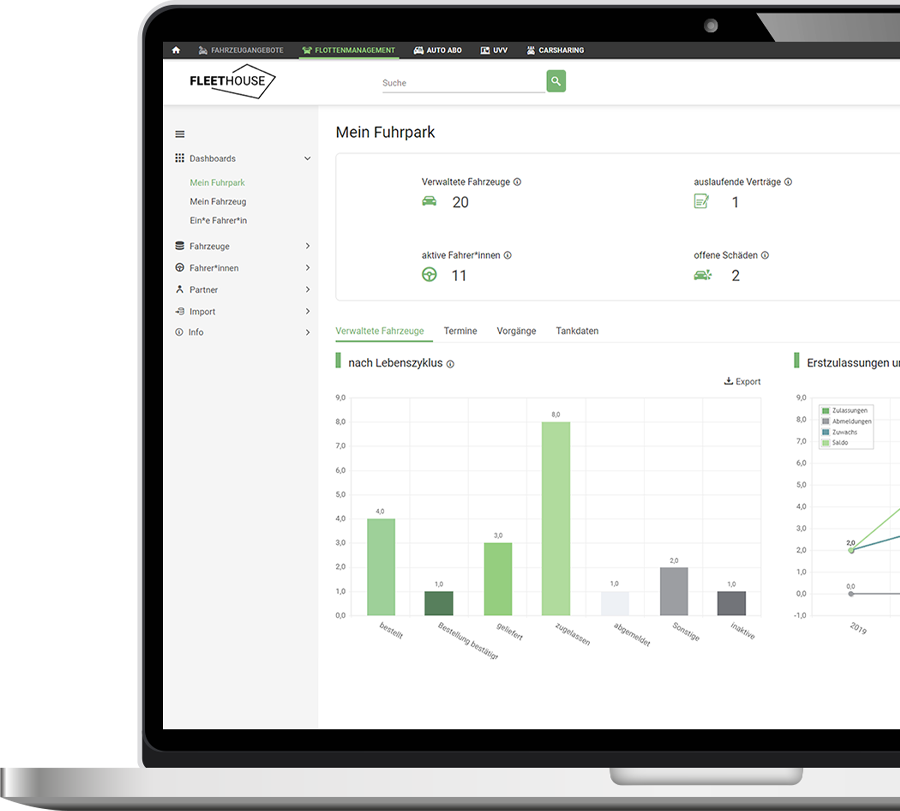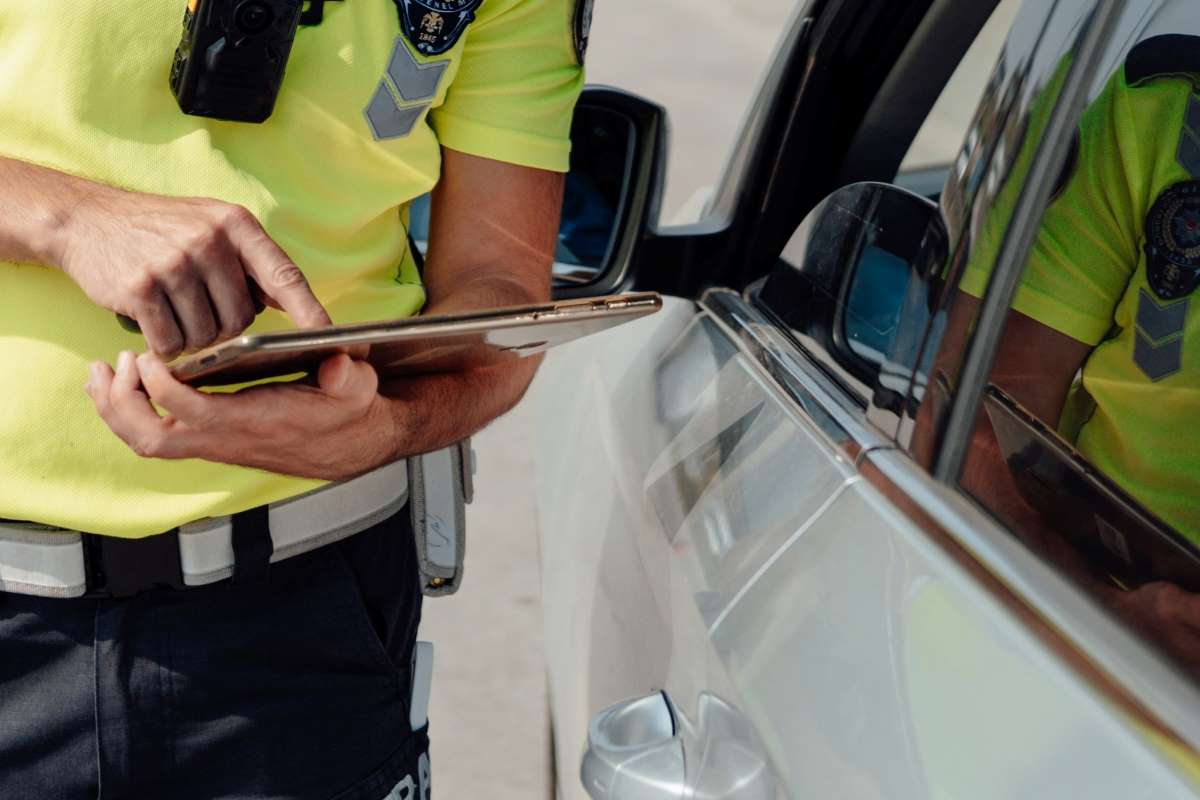Regular checks of driving licenses in the fleet are essential. This ensures that all drivers have a valid driving license and comply with the relevant legal regulations. However, there are a few aspects to consider, especially when it comes to foreign driving licenses. We show how foreign driving licenses can be converted and which ones are valid in Germany.
Contents
Are foreign driving licenses valid in Germany?
In principle, all driving licenses issued in an EU member state or in the European Economic Area remain valid until their expiration date. However, the new EU regulations mean that driving licenses will only be valid for a limited period from 2033. This regulation also applies to driving licenses that previously had no fixed expiration date.
According to Section 28 of the German Driving License Ordinance (FeV), the period of validity depends on the regulations of the respective country in which the driving license was issued.
The validity of other foreign driving licenses is usually six months, provided that the driver has reached the minimum age of 18 required in Germany. In some cases, an official or certified translation of the driving license is required. Fleet managers should therefore take into account the special features when checking foreign driving licenses.
Foreign driving licenses: Temporary residence in Germany
If you do not have a permanent residence in Germany, you can drive a vehicle with a valid foreign driver’s license. A temporary stay in Germany includes, for example, business trips.
It is important to take into account any restrictions on the driver’s license. It must also be noted here that vehicles may only be driven if the driver is at least 18 years old.
Depending on the country of origin, either an international driving license or an official German translation of the document may be required.

Translation and classification of driving licenses
No official or certified translation is required for driving licenses issued in EU or EEA member states. Depending on the origin of the driving license, a German translation or an international driving license may be required:
- Persons from countries outside the EU and the EEA (European Economic Area) must have an international driving license.
- If a driver’s license is not written in German and does not meet the requirements of Annex 6 of the Vienna Convention on Road Traffic of November 8, 1968, a German translation is required.
The ADAC regional clubs offer translation and classification services for a fee. The translated version must be carried on all journeys. Unless the driver’s license originates from the following countries: Andorra, Hong Kong, Monaco, New Zealand, San Marino, Switzerland and Senegal – here the translation requirement in Germany is waived.
Ordinary residence in Germany with a foreign driving license
Ordinary residence in Germany refers to a fixed, regular place of residence where a person has the center of their life. It is a place of residence where a person lives for a continuous period of at least 185 days and has a personal or professional connection to the place of residence. This can be determined by factors such as the length of stay, the type of accommodation (e.g. rented apartment, home) and integration into the social and legal environment of the place of residence.
If you have a normal place of residence, you may drive with your driver’s license for another six months. If drivers can credibly demonstrate to the driving license authority that they will no longer have their normal place of residence in Germany, the period can be extended to a total of twelve months in exceptional cases. Otherwise, the driving license loses its validity after the six months have expired.
Fleet Management
With fleet management software from Fleethouse, you have the right partner at your side. Organize all tasks relating to your vehicles and keep an eye on all appointments.

What is required to convert a foreign driving license?
In order to have foreign driving licenses converted, an application must be submitted to the relevant driving license authority. It is usually sufficient to bring an identification document (identity card or passport), a biometric photo and the foreign driving license. As a transfer is no longer possible after the driving license has expired, it must be ensured that it is valid at the time of application.
As a rule, the processing time for the transfer is around three to six weeks. However, the duration may vary depending on the local authority. It is therefore advisable to submit the application to the driving license authority in good time.
Responsibility for fleet managers
Fleet managers are responsible for many tasks in the fleet. Especially when employees from non-European countries are employed and business trips to Germany are required, checking driving licenses is of great importance. The following must be observed:
- Checking driving licenses: Fleet managers must ensure that drivers with foreign driving licenses are actually authorized to drive the respective vehicles and whether it may be necessary to have foreign driving licenses converted.
- Period of validity: The period of validity of foreign driving licenses can vary depending on the country of origin. Fleet managers must ensure that drivers are always in possession of a valid driving license. If this is not the case, both civil and criminal consequences may result. Even in the case of an incomplete check of foreign driving licenses, the responsible owner of the fleet is always liable under criminal law in accordance with Section 21 of the Road Traffic Act (StVG).
- Traffic rules and regulations: Fleet managers should be aware that foreign drivers may not be familiar with German traffic rules. Appropriate training can provide support here.
- Administrative requirements: Fleet managers must record and manage all required documents and information on foreign drivers to comply with legal requirements.
Driver's license verification
Documenting and managing driver data can take up a lot of time for fleet managers. The integration of an electronic driver’s license check can help with exactly this. The risk is minimized by the automated checks and invalid or missing driver’s licenses can be identified more quickly. The digital tool also sends automatic reminders for upcoming checks and ensures that all drivers are checked in accordance with the law.
The most important information on the topic: Converting foreign driving licenses
A German translation or an international driver's license may be required, depending on the origin of the driver's license.
An official or certified translation is not required for driving licenses issued by EU or EEA member states.
Careful checking of driving licenses in the fleet is necessary to ensure that all drivers have the required license.
Further Fleet Knowledge
If you liked this article and would like to know more about this topic, we recommend these articles.





